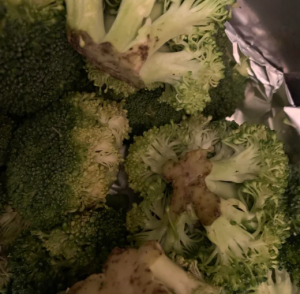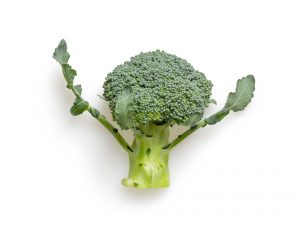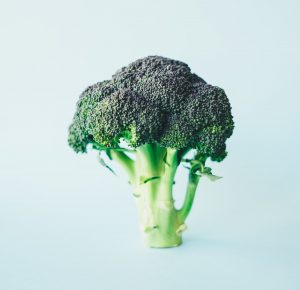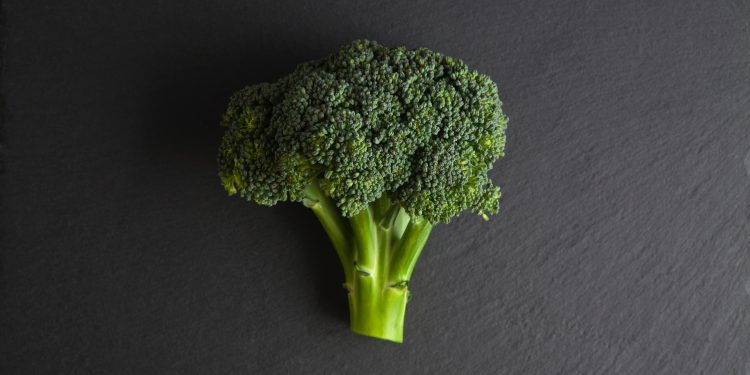Broccolis is one of the most misunderstood vegetables and the most nutritious ones. Loaded with Vitamins A, B, C, and K, this cruciferous vegetable packs many good things that are great for your body.
When picking an excellent broccoli to add to your diet, you want to look for the ones that are bright dark green colored florets and a light green-colored stem. Above all, you want to ensure that your broccoli doesn’t have black spots on it.
Is it safe to eat if you find black spots on your broccoli? The short answer is yes. However, there are certain restrictions and cautions that you have to keep in mind. More on that will be discussed in this guide.
What are the Black Spots on Broccoli?

Despite how good cruciferous vegetables are for our bodies, you can’t deny that they are often prone to diseases and damage.
If you find black spots on your broccoli, chances are that it's due to fungal growth or mold growth on the broccoli, which happens much more than we’d like to admit.
Broccoli can develop fungal growth on their florets from the fungal spores that typically travel through the air when it is humid and moist. While their infestation doesn’t yield any visible changes initially, the longer you store the broccoli, the more you notice the black spots.
If you find the black spot localized to a single spot in the broccoli, you can go ahead and cut it out and eat the rest. However, if the black spot has spread to a point where it has decayed the entire vegetable, that’s when you need to throw it out.
What are the Causes of Black Spots on Broccoli?
Now that you know the black spots on your broccoli, we must look at the list of causes.
1. Pathogenic bacteria
Believe it or not, broccoli is prone to bacterial infections, which can cause the vegetable to rot, leading to black spots on the florets.
The most common pathogenic bacteria responsible for this is Xanthomonas campestris pv campestris. When they attack the plant, the decay starts by turning the vegetable yellow, followed by black spots.
2. Fungal infections
Fungal growth on the broccoli florets is one of the most common reasons you have black and bluish-green spots on the vegetable. The standard type of fungi that contributes to the issue is called Phoma lingam.
These fungal spores attack the plant’s tissues, especially the ones carrying water to the plant, leading to widespread damage and decay. The black spots appear, develop, and spread quickly when they involve fungal infections.
3. Nutrient deficiencies
Sometimes, the appearance of black spots on the broccoli isn’t due to pathogens but neglect and deficiency. Like every other plant, even broccoli has specific nutritional needs.
So, when these needs are unmet, the plant starts showing signs of decay and damage. In the case of broccoli, a lack of an adequate amount of boron in the soil can contribute to the browning and eventual black spots on the plant.
Also Read: Is Cauliflower Man-Made? An In Depth Guide.
Is it Safe to Eat Broccoli with Black Spots?

The answer is yes, but there is a catch. If the black spot on the broccoli is localized to one area and isn’t spread to the entire broccoli, you can eat it.
You have to cut the “infected” or “decayed” part from the broccoli and then cook and eat the rest. Do not eat the broccoli raw if it has a single black spot. You never know the kind of pathogens that could be in it.
Another factor to keep in mind is mold growth. If the black spots on the broccoli are due to mold growth, we’d 100% recommend you avoid eating it. It is not worth taking the risk and experiencing the consequences that come with it.
This is one of the reasons why you need to be careful while buying broccoli. Assess every corner and side of the vegetable to ensure no visible black spots. If you find any, you should avoid buying them altogether.
What are the Health Risks of Consuming Broccoli with Black Spots?
Sometimes, you accidentally consume broccoli with black spots or eat around the black spot because you don’t want to waste the vegetable. Either way, doing so might impose certain health risks you should be aware of.
1. Bacterial infection
Since the development of black spots on the broccoli could be due to an infestation of pathogenic bacteria, experiencing bacterial infection is one of the most common consequences.
The black spot might lead to the risk of being infected with E. coli, a common bacterial infection caused by food poisoning.
2. Fungal infection
Besides bacterial infection risks, eating broccoli with black spots could also lead to the dangers of fungal infections.
These are a lot more common when you eat the broccoli florets raw or you haven’t cooked them for long enough to kill the fungus growing on the florets.
3. Food poisoning
Even if you don’t get any type of severe stomach infection, eating broccoli with black spots might lead to risks of food poisoning, paired with stomach ache, nausea, vomiting, etc.
Besides the black spot, if you notice that the broccoli has become squishy or slimy, that’s also a sign that it's unsafe for consumption.
What are the Signs that Broccoli has Gone Bad?
Besides the prevalent black spots on the broccoli, a few other signs depict that the vegetable has gone bad.
Some of them include:
- The florets start to feel soft, lumpy, and squishy instead of crispy
- The broccoli head is beginning to turn yellow
- The florets have lost their compactness
- The leaves on the stem are dead or wilting
- The stem has a few black spots alongside the florets
If you find any of these symptoms mentioned above, it is time to discard the broccoli and buy new ones.
Check out our article on ‘Importance of Vitamin K‘.
How to Store Broccoli So They Stay Fresh?

Nobody wants their food to go to waste. So, when you see black spots on the broccoli, it's disheartening that you’d have to throw it away.
In that case, how you store the broccoli makes all the difference. Several factors are worth prioritizing, so let us share them with you.
1. In-room temperature
How long do you think a broccoli head would stay fresh when you keep it lying in your pantry or dining table? If you bought the broccoli new, it should remain suitable for 2-3 days when kept at room temperature.
Depending on the weather conditions and the kind of storing conditions, the broccoli might last less or longer when you leave it out.
2. In the fridge
A good-quality broccoli will last up to 5-7 days in the fridge, provided that you have cleaned it well and stored it without any moisture inside or around.
3. In the freezer
If you want to increase the shelf-life of your broccoli florets, the easiest way is by cleaning, destemming, and freezing your broccoli florets. These florets can last up to 6 months in the freezer without any issues.
How to Handle Broccoli that has Black Spots on it?
So, while you take the broccoli out of the fridge, ready to cook it, you see visible black spots on the florets. How do you handle the vegetables in that case?
Following are some tips we’d recommend you follow:
- If the black spots are limited to one place on the broccoli, you must cut and eliminate them immediately before you start cooking.
- When cooking your broccoli, thoroughly wash the stems and even the leaves if they are attached. They might harbor pathogens that many people ignore.
- If you are cooking broccoli with discarded black spots, you want to cook the vegetable thoroughly for a few good minutes until the broccoli is fork-tender. This ensures that all the pathogens in the vegetable are killed.
- Buying pre-cut broccoli can be convenient, but if you find even the slightest discoloration on the vegetable, you should buy a different box.
- Lastly, you need to store your broccoli properly. Avoid storing them with moisture in between the florets. That leads to a quicker decay.
Also Read: Everything You Need To Know About Bulking.
Conclusion
Eating broccoli with black spots comes with a lot of warnings and precautions. If you have one lying around in your fridge and are wondering what to do, we hope this article gives you a better understanding of things. Wasting food is never good, but if eating it might compromise your health, you should prioritize your health in this case.

























